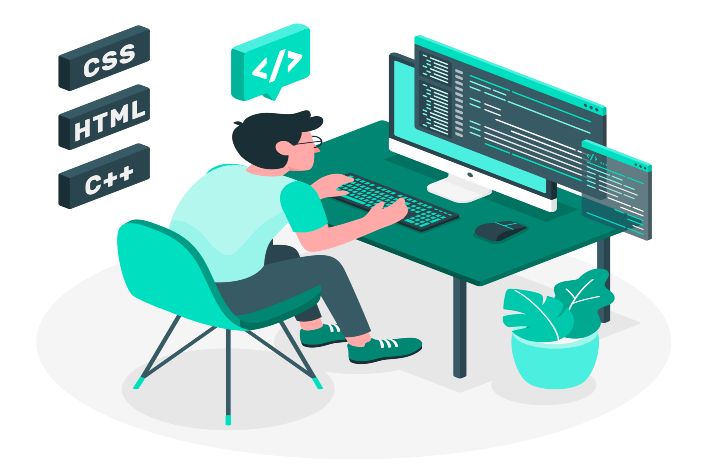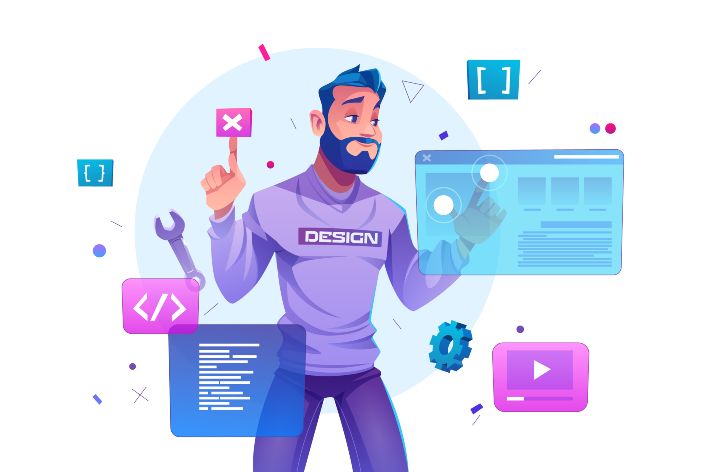How Does Coding Impact a Child's Problem-Solving Skills?
By Pinkey Sharma |
Date 2024-07-30

Table of Contents
- Information about Coding and Problem-Solving
- Problem-solving skills are improved by coding:
- Challenges to Kids Coding Programs
- Coding Challenges for School Kids
- Below are the real-World Examples of Coding Impacting Problem-Solving Skills of children:
- The Role of Educators and Parents in Supporting Coding Education
- Conclusion
- Frequently asked questions
Admissions Open for
With the way technology today persists in its growth, the art of coding becomes very important, not only to people wanting to venture into technology but to all. Coding provides a distinct way of developing problem-solving skills among children. The article will talk about how coding develops problem-solving skills in children, the common challenges associated, and how the challenges of coding for school-going kids play a role in enhancing these skills.
Information about Coding and Problem-Solving
Coding involves instructing the computer using specified programming languages. It is the interaction of reasoning, creativity, and cautiousness. On the other hand, problem-solving can be defined as seeking solutions to difficult problems, where the real magic lies at the junction of these two skills. Kids learn through coding how to structure their thinking and approach problems in many different areas of life.
Problem-solving skills are improved by coding:
- Logical Thinking and Sequencing: While practicing coding, the child learns to break down a problem into parts making it easy to handle. This strategy of solving a problem is called decomposition. If children, for example, are programming a game, then they need to develop a flow of steps that the characters should take. This enhances their ability to think logically and sequentially.
- Persistence and Resilience: Coding involves several debugging processes, which entail the location and fixation of errors in the code. This lesson persists in the children the virtue of persistence and resilience. When faced with a problem, they will learn to try many varied solutions until they get the one that works. This trial and error is very instrumental in developing problem-solving skills.
- Creativity and Innovation: Kids can work on their projects-cum-ventures—be it a game, a website, or an application—after learning the skills to code. The children can think creatively and accordingly can bring innovation in the coding.
- Problem-Solving Skills: The thinking ability of the children improves when coding. Thus children should be allowed to try coding on their own to be able to solve problems on their own. This analytical approach is very important in effectively tackling any problem.

Challenges to Kids Coding Programs
While the benefits are evident within coding, there also exist several other realities that kids face within these programs. Parents and, educators, need to understand how to create effective learning environments.
-
Resource access: Multiple resources are being required for the coding like a desktop or a laptop, a stable & fast internet connection and the educational material. Proper coaching is required for the children to learn to code. This involves huge costs for buying necessary hardware and training.
-
High-Quality Instruction: The quality of instruction plays a key role in quality coding. The children should get expert teachers for coding as every teacher may not be an expert in coding. Also, changes take place in technology which may bring variation in the case of teaching.
-
Engagement and Motivation: Sometimes children may find coding a little difficult thus leading to a loss of motivation while coding. Also, some children have less understanding ability which can lead to loss of interest.
-
Gender and Diversity Gaps: There is a gender gap which exists in coding, with fewer girls getting enrolled to code relative to boys. There is a gap in race and socioeconomic status, too. It is imperative to work through these gaps toward an inclusive environment in coding.
-
The Relevance of the Curriculum: The other uphill task will be ensuring that the curriculum being taught remains relevant and updated according to prevailing industry standards. Technology is changing pretty fast, and along with it are the programs for coding.
Coding Challenges for School Kids
The above-mentioned challenges can be overcome by introducing Coding challenges, encouraging school-going kids to work and actively apply their knowledge of coding to develop their problem-solving abilities.
- Coding Competitions: When children are engaged in coding competitions, that infuses motivation in itself. Most often, real problems to be solved or challenges to be overcome are presented in the competitions for creative and effective solutions. Typical examples of such competitions include hackathons, Olympiads in coding, and game development contests.
- Project-based learning: Encourage problem-solving skills through coding projects, such as building a basic website or developing a mobile app. Through this method, children can see what they make and learn from the mistakes they make.
- Collaborative Coding: Computer Science is one of the very few areas in which a team working on problems together actually tends to help children learn to solve problems collaboratively. In this approach, students share ideas, debug, and learn from each other in groups while working their way through the problem. It gives them a real-world coding environment to enhance technical and interpersonal skills.
- Online Coding Platforms: Nowadays, various online platforms challenge kids towards coding. They comprise Code.org, Scratch, and Khan Academy. These websites provide a huge number of coding puzzles and projects through which kids can interactively develop problem-solving skills.
- Mentorship Programs: They will greatly benefit from having mentors who already have experience in coding. They help the child to overcome challenges, make a child understand the industry of coding, inspire continuous learning, and create an overview of the entire industry regarding coding.
Below are the real-World Examples of Coding Impacting Problem-Solving Skills of children:
- Code Club: A global network of free coding clubs for 9- to 13-year-olds, where young people can learn coding through games, animations, and websites. Many participants improved their problem-solving skills and developed confidence in their abilities.
- Girls Who Code: Girls Who Code is an organization working on bridging the gender gap in technology. Their programs teach girls how to code while developing projects that have solved important issues around the world. Participants created apps to stop bullying, websites that have raised awareness about environmental issues, and many more. These represent some great examples of coding and problem-solving.
- FIRST Robotics: The FIRST Robotics Competition is a competition where teams of high school students create and program robots to compete in a variety of tasks. The level of problem-solving that is required is very high because this is a competition where students are called upon to design, build, and test their robots to meet specific challenges. Many of the participants in this competition pursue engineering and technology careers and cite this experience as the foundation of their problem-solving skills.

The Role of Educators and Parents in Supporting Coding Education
Children require educators’ and parents' voice and support in nurturing their interest in coding as well as simultaneously developing problem-solving skills. This is how they can be helped:
- Resources: A fundamental requirement for children to learn coding is to be provided with relevant resources. This must include being in a position to have computers and internet resources and relevant learning materials. This can be provided through coding clubs and extra-curricular activities that are offered through schools and communities.
- Participation: Encourage children to participate in coding activities, competitions, hackathons, and challenges; this will give them the urge to continue. Emphasize how coding applies in real-life situations to provoke their interest.
- Growth Mindset: Allow children to learn that mistakes are an integral part of the process—the growth mindset comes in here. We should insist that they look at challenges as opportunities for growth and not barriers.
- Role Modeling: Showing children different role models working in the tech industry, specifically those who have overcome similar challenges to theirs, can inspire them to code. This work is often very effective for girls and underrepresented minorities.
- Inclusive Environments: That is to say, children's coding programs need to be based on inclusivity for every child, regardless of their gender, race, or even socioeconomic background. This entails overcoming biases and providing support for those who may have additional barriers.
Conclusion
It's a technical capability that confers many benefits in raising children who are more resourceful at problem-solving. Through coding, a child is capable of developing skills such as logical thinking, creativity, resilience, and analysis. However, there needs to be a focus on kids' coding programs to address barriers to enhancement, like resources and quality of instruction, so each child gets equal opportunities for benefitting.
Introduce coding challenges to school kids in the form of competitions, project-based learning, and mentorship programs for hands-on and engaging development of problem-solving skills.
This is a point where educators and parents can play a vital role in shaping unambiguous and positive coding environments. They can do this by providing resources, encouraging participation, developing a growth mindset, being role models, and creating inclusive environments for children to enhance the skills they need to thrive in the digital age.
Ultimately, coding is not about writing code for software; it is more about how to think and engage with problems. In making a child proficient in coding, we are arming them for the future to face any challenge head-on.
Frequently asked questions
How does coding build problem-solving skills?
It requires lots of thinking to build problem-solving codes. This planning helps kids to foresee problems that might come during certain projects. The children become sharper as they need to think a lot which can help them become good problem solvers.
How does coding improve analytical skills?
Coding improves analytical skills by teaching children to break down complex problems into smaller, manageable parts. It helps create step-by-step solutions. By debugging and optimizing code, kids also learn to spot patterns and think critically to solve issues efficiently.
Is coding like solving problems?
Coding is like solving puzzles. Thus the children’s creative mind starts working while learning to code. Their brain becomes sharp when they become used to coding.
How does coding help in logical thinking?
Doing coding trains your mind to think algorithmically. It helps in solving complex problems into easy steps.
What are the mental benefits of learning to code?
Coding helps in boosting problem-solving skills. Coding helps in breaking complex problems into small and manageable components. This process can help in solving complex problem-solving skills.
Share your coding experience with us in the comment section below!
CBSE Schools In Popular Cities
- CBSE Schools in Bangalore
- CBSE Schools in Mumbai
- CBSE Schools in Pune
- CBSE Schools in Hyderabad
- CBSE Schools in Chennai
- CBSE Schools in Gurgaon
- CBSE Schools in Kolkata
- CBSE Schools in Indore
- CBSE Schools in Sonipat
- CBSE Schools in Delhi
- CBSE Schools in Rohtak
- CBSE Schools in Bhopal
- CBSE Schools in Aurangabad
- CBSE Schools in Jabalpur
- CBSE Schools in Jaipur
- CBSE Schools in Jodhpur
- CBSE Schools in Nagpur
- CBSE Schools in Ahmednagar
- CBSE School In Tumkur

Call Us to know more about Orchids
Swipe Up

















